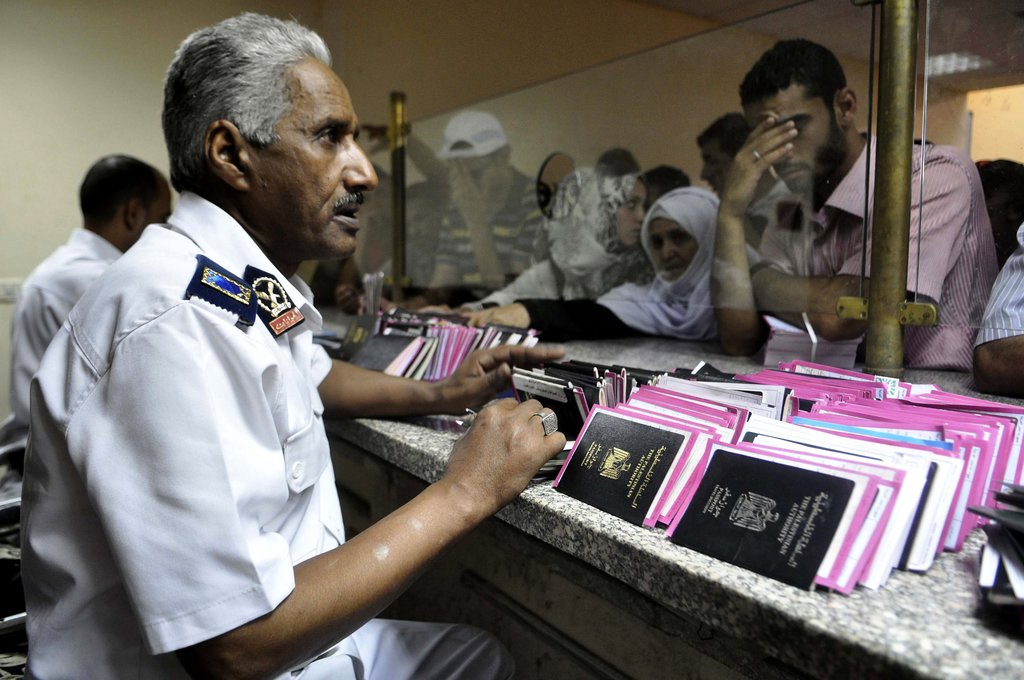JERUSALEM: Israeli police mobilized reinforcements from across the country to secure volatile Jerusalem on Tuesday, deploying thousands of officers on city streets for fear days of clashes with Palestinian protesters would escalate.
Rumors that Israeli extremists planned to march on a shrine holy to both Jews and Muslims apparently have fueled the unrest in Jerusalem, the city at the heart of the Israeli-Palestinian conflict. The low-level violence has inflamed political passions, stoked breathless reports in the Israeli and Arab media and laid bare once again just how much of a tinderbox Jerusalem is.
Israeli police spokesman Micky Rosenfeld said thousands of police, including officers brought from other areas of the country, had been called in to secure the city on Tuesday. Rosenfeld described the reinforcement as exceptional, but by late morning, there were no reports of incidents.
The weeklong Jewish holiday of Sukkot, which draws many Jewish visitors to Jerusalem, has been the backdrop of the recent unrest. Israel says Muslim leaders from the country s Arab minority have been inciting the unrest.
Israel and the Palestinians both lay claim to Jerusalem, with Israel insisting it will retain control of all of the city, including the eastern sector it captured and annexed in 1967.
The Palestinians want east Jerusalem, with its major Jewish, Muslim and Christian holy sites, for their future capital. Like the rest of the international community, they do not recognize the Israeli annexation and regard the Jewish neighborhoods that ring east Jerusalem as settlements, which Israel does not.
Israel is working on a daily basis to Judaize Jerusalem by building settlements, not permitting (Palestinians) to build and by assaults on the Al-Aqsa mosque, like we see today, Palestinian President Mahmoud Abbas told Yemen s state-run TV on Monday.
The Palestinians are fighting tooth and nail to defend Al-Aqsa, he added, but this needs great Arab and Islamic efforts.
Jerusalem s 220,000 Arabs and 550,000 Jews live in an uneasy coexistence that frequently leads to friction and erupts into outright violence.
On Sunday, rumors circulated among the Palestinians that Jewish extremists planned to invade or damage the sacred east Jerusalem compound that is home to Islam s third-holiest shrine, the Al-Aqsa mosque, and is revered by Jews as the site of their two biblical temples.
About 150 demonstrators streamed to the hilltop compound, known to Muslims as Haram as-Sharif and to Jews as the Temple Mount, where they hurled rocks and bottles at Israeli police. Police accused Muslim leaders in Israel s Arab community of inciting the unrest and closed the compound to most visitors.
The disturbances continued the next day, as Palestinian protesters hurled stones at Jewish worshippers outside Jerusalem s Old City and a Palestinian teenager stabbed an Israeli soldier at a security checkpoint elsewhere in east Jerusalem, slightly wounding him.
Raed Salah, head of a branch of Israel s Islamic Movement, told the Haaretz newspaper on Monday that the clashes would last as long as Israel s occupation of the city and Al-Aqsa continued.
The mosque compound is Muslim, Palestinian and Arab, and Israel has no rights to the mosque or east Jerusalem, Saleh said, calling on Arabs to protect Al-Aqsa from the infiltration of extremist Jewish elements.
In neighboring Jordan, Foreign Minister Nasser Judeh summoned the Israeli ambassador and protested what the Jordanian government called Israel s continuous violations of the sanctity of Muslim and Christian holy sites in east Jerusalem.
Israel captured east Jerusalem from Jordan in the 1967 Mideast war. But Jordan continues to hold custodial rights over Muslim holy sites.
Israeli Foreign Ministry spokesman Yigal Palmor blamed the unrest on radical elements who wish to create a crisis around the Temple Mount.
Media reports have only fueled the tension, with the Al-Jazeera satellite station reporting at the start of the clashes that Jewish settlers tried to enter the disputed hilltop complex and that police had put Muslim worshippers under siege.
The main headline in a leading Palestinian newspaper, Al-Quds, blared on Monday: A new attempt to invade Al-Aqsa Mosque fails, police suppress the people with blows and arrests.
The front page of Israel s Yediot Ahronot newspaper on Tuesday showed a masked Palestinian throwing stones amid billowing plumes of black smoke, under the headline, Sukkot riots.
Danny Seidemann, a champion of coexistence in Jerusalem, said the violence was triggered by a convergence of events including a semi-stalled peace process that emboldens extremists.
Even if things die down, the underlying causes for the destabilization of Jerusalem are still in place, and this should be a clear message to the Obama administration, Seidemann said, referring to US efforts to renew Israeli-Palestinian peace talks.


